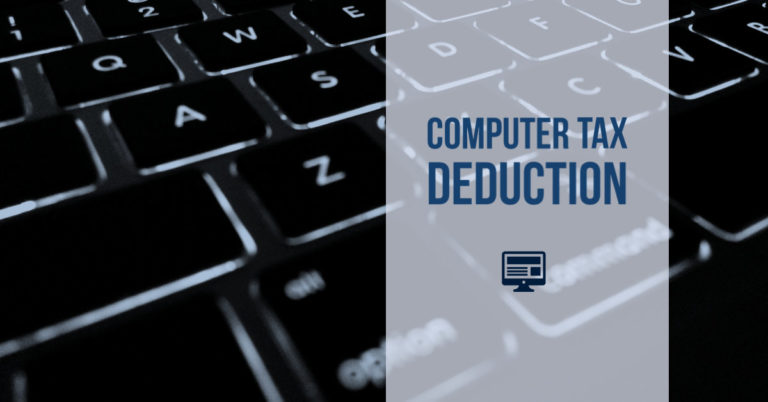Does it make sense to rent out your vacation home for part of the year? How does it impact your tax deductions?
Are you contemplating the idea of renting out your vacation home for a portion of the year? Before you take the plunge, it’s essential to understand how this decision can affect your tax deductions.
The tax rules for renting vacation homes depend on how many days the home is rented and how many days you use it personally.
Vacation Homes Rented Less than 15 days: Not Considered Rental Property
If you rent vacation property out for less than 15 days during the year, it’s not treated as “rental property” at all. In the right circumstances, this can produce significant tax benefits. Any rent you receive isn’t included in your income for tax purposes (no matter how substantial the amount).
On the other hand, you can only deduct property taxes and mortgage interest—no other operating costs related to renting the property and no depreciation.
Vacation Homes Rented More than 14 Days: Rental Income & Tax Deductions
If you rent your vacation property out for more than 14 days, you must include the rent you receive in income.
However, you can deduct part of your operating expenses and depreciation, subject to the following rules. First, you must allocate your expenses between personal use days and rental days.
Personal use includes vacation home use by your relatives (even if you charge them market rate rent) and use by nonrelatives if a market rate rent is not charged.
Example
If the vacation house is rented for 90 days and used personally for 30 days, then 75% of the use is rental (90 days out of 120 total days of use). You would allocate 75% of your maintenance, utilities, insurance, etc., costs to rental. You would allocate 75% of your depreciation allowance, interest, and taxes for the vacation property to rental as well.
The personal use portion of real estate taxes is deductible separately. The personal use portion of mortgage interest on a second home is also deductible if the personal use exceeds the greater of 14 days or 10% of the rental days. That is the case in our example. However, depreciation on the personal use portion isn’t allowed.
- If the rental income exceeds these allocable deductions, then you report the rent and deductions to determine the amount of rental income to add to your other income.
- If the expenses exceed the income you may be able to claim a rental loss for your vacation home. This depends on how many days you use the vacation house for personal purposes.
The Personal Use Test for Vacation Homes
If you use your vacation home personally for more than (a) 14 days, or (b) 10% of the rental days, you are using it “too much,” and you can’t claim your loss.
In this case, you can still use your deductions to reduce the rental income on your vacation home to zero, but you can’t create a loss. Any deductions you can’t use are carried forward and may be usable in future years.
If you are limited to using deductions only up to the amount of rental income, you must use the deductions allocated to the rental portion in the following order: (1) interest and taxes, (2) operating costs, (3) depreciation.
Example:
You rent your vacation home for 60 days and use it personally for 20 days. You are paid rent of $8,000. Expenses are $6,000 in interest and taxes, $3,600 operating costs, and $4,800 depreciation, for a total of $14,400.
Personal use of the vacation home is 25% (20 out of 80 total use days). So 75% of expenses are allocated to rental ($14,400 × 75% = $10,800). There is a rental loss of $2,800 ($8,000 income, $10,800 expenses). However, personal use (20 days) exceeds the greater of (1) 14 days and (2) 10% of rental days (6). Thus, the loss is disallowed on your vacation home.
You can deduct only $8,000 of expenses (up to the rental income) for the vacation home. You must first deduct the rental portion (75%) of the interest and taxes: $4,500 (75% of $6,000). Then deduct 75% of the operating costs: $2,700 (75% of $3,600), which totals $7,200 ($4,500 + $2,700). You can then deduct only an additional $800 of depreciation to bring your net income from the vacation property to zero.
If you “pass” the personal use test for your vacation home, you must still allocate your expenses between the personal and rental portions. In this case, however, if your rental deductions exceed rental income, you can claim the loss.
In conclusion, renting out your vacation home can be a lucrative endeavor, but it’s crucial to grasp the tax implications that come with it. By understanding the tax rules surrounding rental properties, you can optimize your deductions and potentially reduce your taxable income. Remember to keep meticulous records of rental income, expenses, and personal use days to ensure accurate reporting. Consulting with a tax professional can provide further guidance tailored to your specific situation. With the right knowledge and careful planning, you can unlock the full potential of your vacation home while staying on top of tax rules.
More Information
If you have questions, contact us to discuss your situation.
To check out our other articles on business topics, click here.

Debra Annis
Debra Annis brings 40+ years of experience in accounting and tax. She helps clients overcome obstacles with cash flow, planning, stability and growth. She enjoys working with clients to find solutions that achieve their plans and avoid paying unnecessary tax.
About Smith Patrick CPAs
Smith Patrick CPAs is a boutique, St. Louis-based, CPA firm dedicated to providing personal guidance on taxes, investment advice and financial service to forward-thinking businesses and financially active individuals. For over 30 years, our firm has focused on providing excellent service to business owners and high-net worth families across the country. Investment Advisory Services are offered through Wealth Management, LLC, a Registered Investment Advisor.





